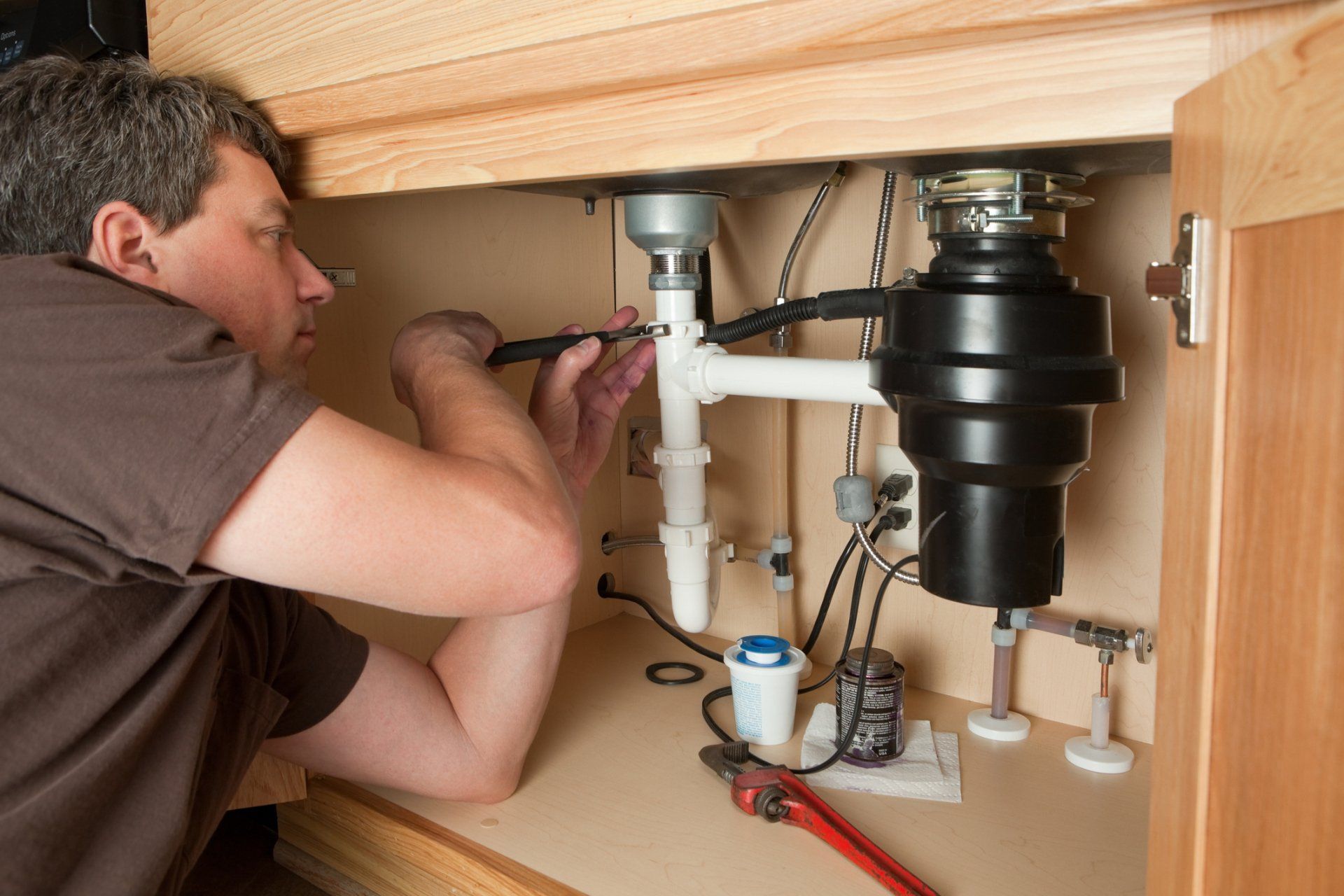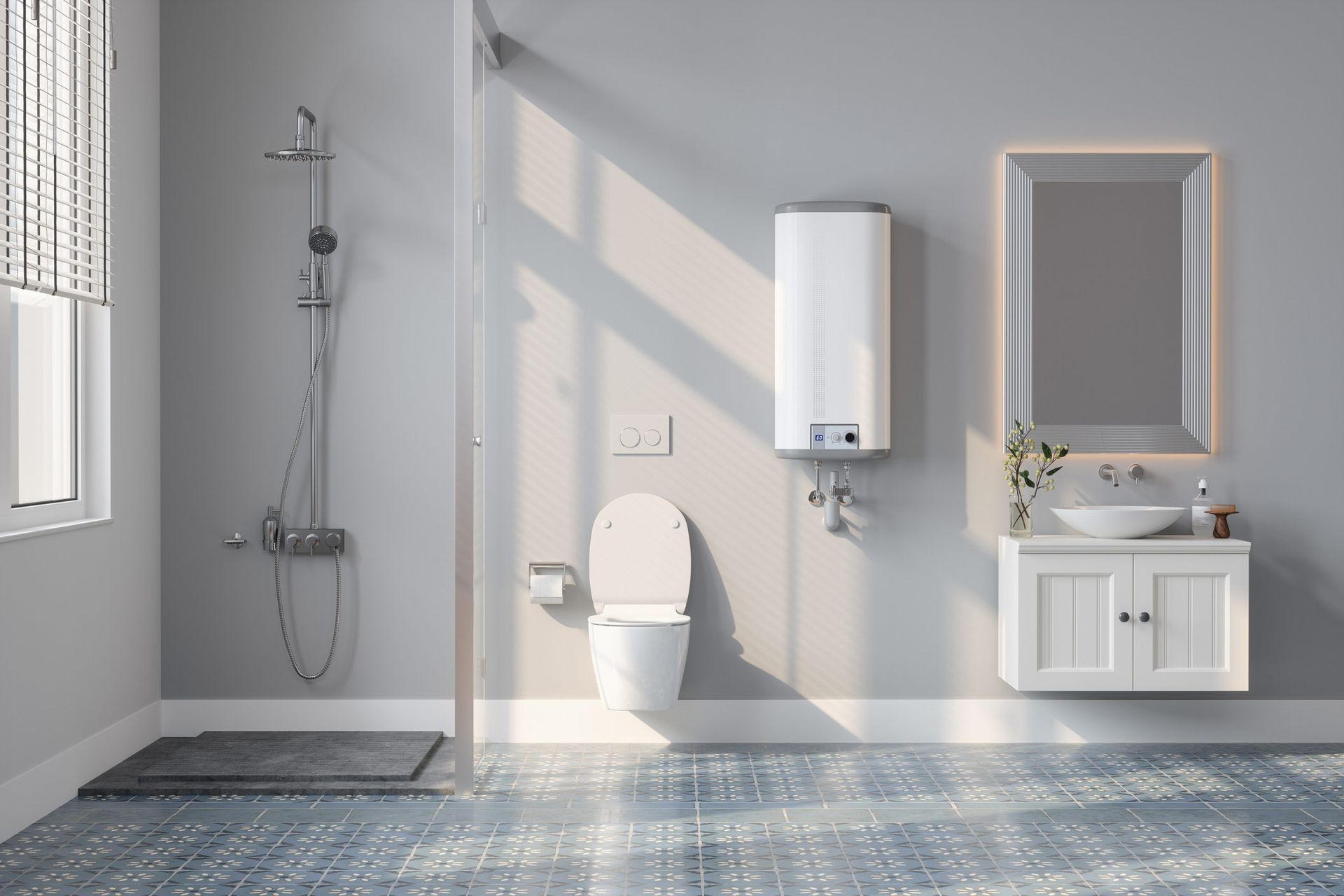9 Signs That Your Water Heater May be Failing
Admin • July 6, 2021
- Is it Rusted? If you are noticing red or orange chips or dust around your tank or a metallic smell coming from your tank, it’s a sure sign of corrosion. The tank could be rusted both inside and out. There is no fixing corroded tanks and you should plan to replace your water heater as soon as possible.
- The floors are wet around the tank. If you are noticing water around the area of your tank, it could mean you have a slow leak. When water heaters warm water, they expand and if it’s old, it could crack during expansion, leading to leaks. Check around the fittings and connections for cracks while your water heater is warm. Report your findings to your plumber.
- Limited hot water production or lukewarm water. If this is happening it’s a pretty obvious sign that your water heater is declining or very close to failing and the internal mechanisms are likely going bad. Your water heater should not take extended periods of time to warm your water. You will probably have to replace it at this point.
- Odd or Loud noises are occurring. Hard water can be well, hard on appliances designed for the water in your home. If you have hard water, mineral deposits can gather in the bottom of your tank and solidify. A clanking noise could mean that the heating elements are interacting with debris. Flushing your system may help with this but if it doesn’t, you may have to replace your water heater.
- The pilot light is yellow. If you have a gas water heater, your pilot light should be blue. If it’s yellow it could indicate a dirty pilot tube or a problem with the airflow to the pilot light. If you are confident you can trouble shoot, you could try cleaning the tip of the pilot tube of debris and dirt yourself or call a professional to do it for you.
- Your water is cloudy or discolored. If you have discoloration it could be a sign of mineral buildup. Mineral buildup can lead to corrosion and leaks. Check your water heater tank for leaks and you should make an appointment with a professional if you find any leaks.
- Odd smells. If you are noticing your water heater has a strange smell coming from it, it could mean the adnode rod has worn down or broken off. You should make an appointment and a professional can determine what the right solution for your water heater is.
- The water tastes funny. This could indicate corrosion in the tank of your water heater or your pipes could be leaching iron into your water supply. Many older houses have lead pipes and lead leaking into your water supply can cause serious issues. Further, if you are tasting a “chemical” taste in your water, this could signal a discharge of chemicals has happened and has gotten into the local water supply. Please contact authorities if you taste chemicals.
- Old Water Heater. Most water heaters have a life span of 10 years. Anything beyond that is a blessing. If your old water heater is in good working order then you should be diligent about maintenance and inspections. You should however be on alert that a replacement could be right around the corner.
The most important thing to remember is if you think you have an issue and aren’t confident you can trouble shoot it or fix it, you should always call a licensed professional to help you. This will ensure that you get a correct diagnosis and repair.

Always use cold water when grinding food. Hot water can soften built up greases and cause bigger issues down the road for the unit and the pipes into which it feeds. Continue running water after you have turned off disposal to make sure food debris is washed down the pipes. Avoid fibrous foods like banana peels, broccoli, asparagus, celery, corn husks and potato peels as they can get wrapped around the shredder ring (“blades”) and cause them to seize up. Avoid large amounts of starchy and water absorbing food like pasta, rice, oatmeal, and coffee grounds as they may cause clogs in your drain or pipes. Avoid grease and cooking oil in ALL of your sinks, not just your disposal! Avoid overly hard foods like bones, shellfish shells, and fruit pits. Even if your disposal has enough horsepower to handle them, your pipes may not be able to. Don’t use bleach or other harsh chemicals to clean your disposal. It can lead to damage of parts, not to mention it could splash up and get in your eyes once the disposal is turned on. Always disconnect power to the unit any time cleaning or maintenance is being performed, either by unplugging the disposal from the outlet under the sink, or turning off the disposal's breaker in your home's service panel (breaker box). Never stick your hands in the drain. Use a tool of some kind to remove clogs, retrieve whatever accidentally got dropped down there or to clear the shredder ring (blades). For odors, use warm water and lemon wedges with the peel on. Run the disposal like usual. The acid of the lemon neutralizes odors and the peel helps scrape any build up away. Another option is to put ½ to 1 cup of baking soda in your disposal and slowly pour in a similar amount of vinegar to create foaming. This will help with bacteria and odors. Cleaning your unit monthly can keep odors from developing. To clean, fill it up with ice cubes and a ½ to 1 cup of mild abrasive, such as rock salt or baking soda. You could also drizzle in dish soap if you wish. Run the disposal with very warm water. This will help “scrape” the sides and nooks where food particles can collect. You should also pull out and clean both sides of the rubber splash guard at this time to keep a gunky slime from forming. Be sure to run the water for 30 seconds after everything is washed down to keep it moving down your pipes. If your unit seems to be acting up or has completely stopped working, try the reset button before moving on to a service call. You can save yourself a lot of hassle and money if all it needed was to be reset. Even with the best of care, things break or fail. Average life expectancy of a disposal is 10-12 years with proper use and maintenance. If you think you need replacement of your garbage disposal, call Master Plumbing Services, your plumbing professionals in the Minneapolis, St. Paul and surrounding areas.








